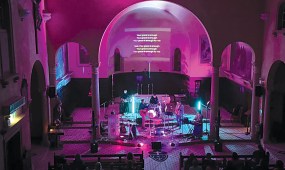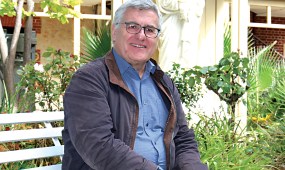Pandemic sparks spiritual awakening
National
A report has revealed that the experience of COVID-19 has led many Australians to a renewed spiritual search.

According to the McCrindle Research report released last year, a third of Australians have thought more about God, while three in ten have prayed more.
During the pandemic almost half of Australians have thought more about the meaning of life or their own mortality (47 per cent for both).
The survey of 1000 Australians found the collective experience of the pandemic had ushered in a return to local and a focus on community, with half of Australians valuing a strong local community more than they did three years ago.
Advertisement
The local church was seen as a key element of the local community with three in four Australians (76 per cent) agreeing the churches in their local area are making a positive difference to their community.
The survey also found that two thirds of Australians are likely to attend a church service either online (64 per cent or in person (67 per cent) if personally invited by a friend or family member.
Far from religion and spirituality being only for older Australians, Gen Z (45 per cent) are twice as likely as baby boomers (21 per cent) to be extremely or very likely to attend an online church service if personally invited by a friend or family member.
“This data is worth reflecting on a little longer: in this seemingly secular era, where the church is perceived by many commentators to be on the decline and culturally outdated, almost half of all young adults invited to a church service by a friend or family member would very likely attend,” said Mark McCrindle, principal of McCrindle Research.
The report also found that Australians are accepting of other religious views. Nine in ten agreed that in Australia people should have the freedom to share their religious beliefs, if done in a peaceful way, even if those beliefs are different to mainstream community views.
There was, however, wavering support for religious symbolism in public life. Almost two in five Australians (39 per cent) agreed that Christian practices in public life such as parliament opening in prayer, oaths in court being taken on the Bible, or Christian chaplains in hospitals or jails should be stopped.
Three in five disagreed and were open to Christian practices in public life continuing.











Comments
Show comments Hide comments